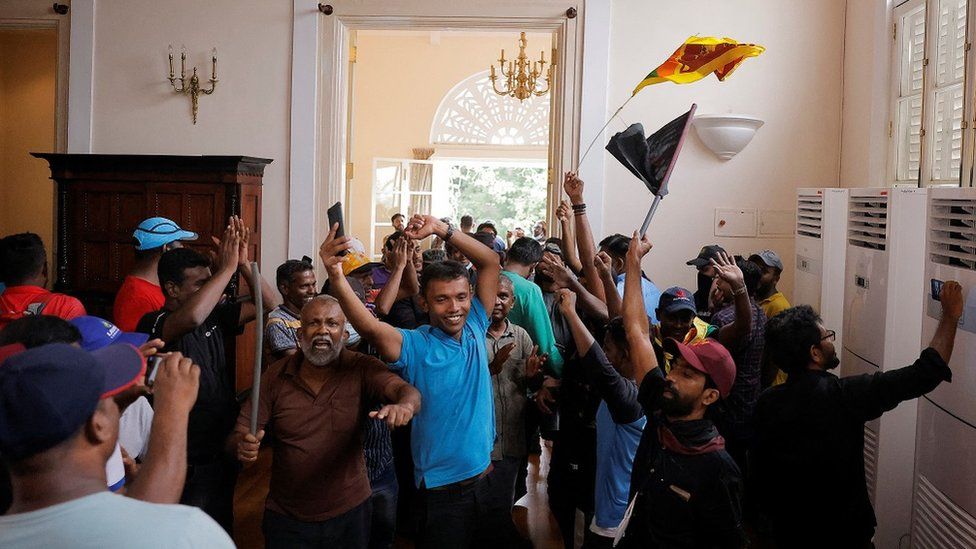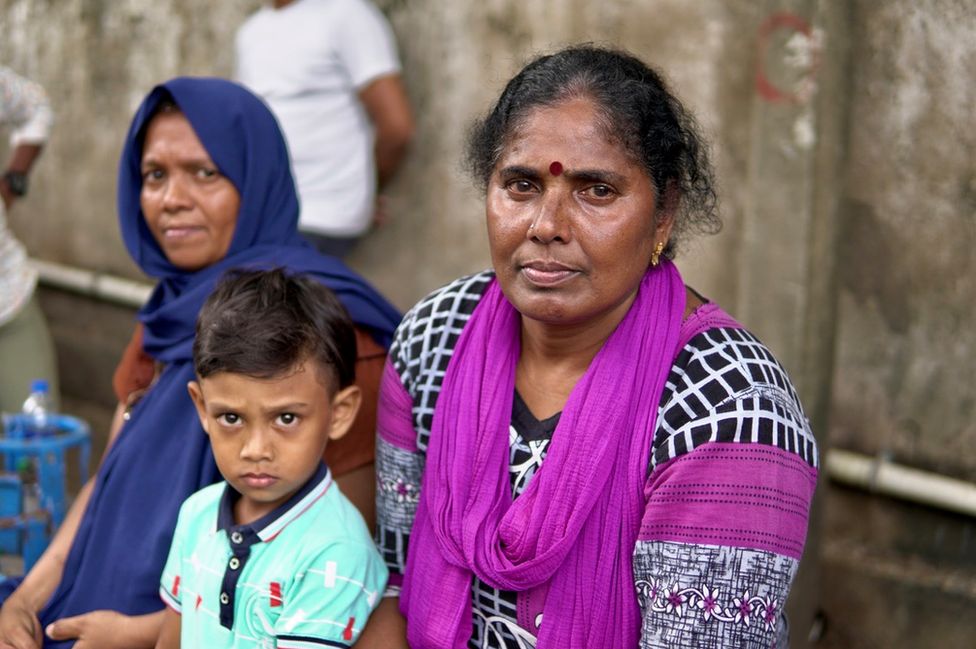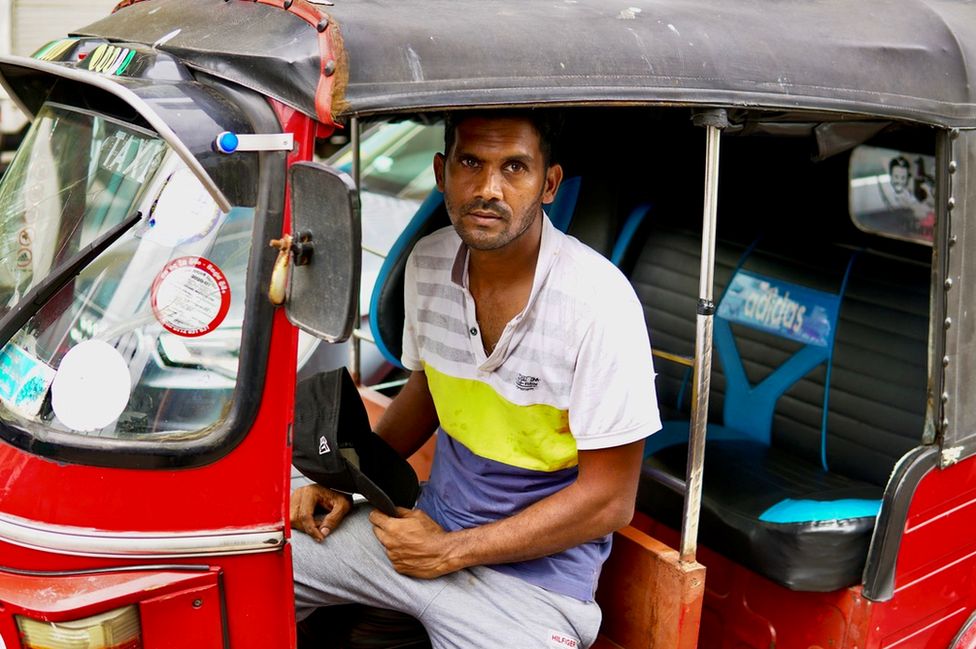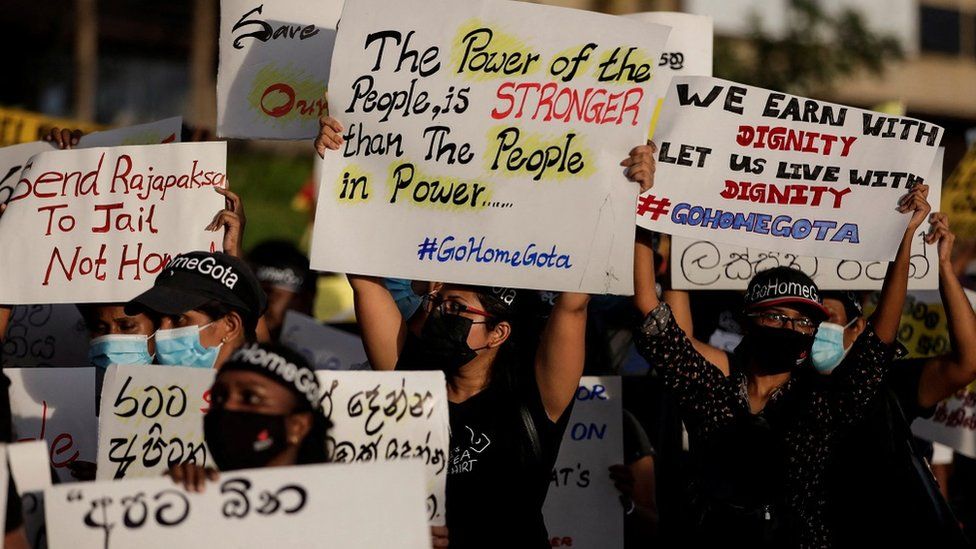Sri Lanka: First fuel in days trickles through to residents
The financial crisis is the worst the country has seen since independence.

KATHMANDU: Limited fuel and gas supplies have resumed in parts of Sri Lanka after a weekend of tumultuous anti-government protests over the economic crisis.
Long queues formed at filling stations and community centres across the capital, Colombo, on Monday, thronged by thousands of weary residents.
Fresh supplies came as a relief for a city on edge after months of shortages of fuel, food and other basics.
The financial crisis is the worst the country has seen since independence.
Rampant inflation has made prices soar and the country’s foreign currency reserves have all but run out, leaving it struggling to import food, fuel and medicine.
Anger and frustration boiled over at the weekend. Tens of thousands of protesters stormed President Gotabaya Rajapaksa’s official residence in Colombo on Saturday, after months of protests over his handling of the economy.
Crowds also burned down the private residence of Prime Minister Ranil Wickremesinghe. Neither man was in the buildings when they were stormed.

In the Slave Island district of Colombo on Monday, hundreds of people waited for tokens they could redeem for cooking gas after a shipment of liquid petroleum gas arrived in the country on Sunday.
An endless line of empty blue gas cylinders wrapped around several tree-lined blocks of apartments. Those at the start of the queue had been waiting for hours.
Perched on her gas cylinder, P Selvi Kalachelvi fished out a plastic bag of rotis or flour pancakes from her handbag. It was the only thing she was eating that day.

“I’ve gone six months without cooking gas now. I once waited for four days for kerosene and I still didn’t get anything,” she told the BBC.
“Everyone is suffering, what can we do?”
Cooking gas has been scarce for months, while many petrol stations had halted sales to ordinary people two weeks ago to conserve fuel for essential vehicles, bringing much of the country to a standstill.
Many of those waiting in line were women, desperate to get kerosene to cook their families’ meals after months of relying on chopped wood to light their fires, which they found expensive and impractical.
Coupled with the soaring prices of food – some residents said the cost of chicken and beef had quadrupled since the start of the crisis – it’s led most people to cut back on meals, eating only twice a day and cooking flour and vegetable dishes. Meat and fish have not been on the menu for months.
There was a stir in the crowd when police officers arrived and announced they only had enough tokens for about 1,000 families. Dozens of anxious residents trailed a policeman as he made his way down the row of cylinders, counting them one by one.
He reached the end of the line – there were enough tokens for everyone. Relief flashed across the faces of the crowd.
Across town at a Lanka IOC petrol station, soldiers and police officers directed traffic and monitored the crowds.
Quarrels occasionally broke out as drivers jostled and waited in a slow-moving queue. Petrol station attendants filled their tanks while clutching thick wads of cash, as drivers forked out large sums for the fuel.

One tuk-tuk driver told the BBC he had started queueing three days ago, taking turns with his family members to keep watch over their vehicle.
Gayan Kalanda said he had to pay 2,500 Sri Lankan rupees ($6.90; £5.80) – nearly half a day’s earnings – just for five litres of petrol. It was the seventh time he’d had to wait for days for petrol and he was exhausted.
“We just don’t feel secure in this country. We’re hungry too… we just don’t have a proper life in Sri Lanka,” he said.
Further back in the queue was Kanishka De Silva, a banker who had taken time off work to get fuel. On his car’s dashboard was a slip of paper he had left overnight, with his phone number written on it along with the plea: “Please call if petrol comes.”
“It’s been getting worse and worse,” he said, pointing at the queue. “Here we have doctors, bankers, but also tuk-tuk drivers. It’s been a common battle, that’s why the protests have been so strong.
“I work nearby, so it’s fine. But lots of people live on the outskirts and it’s been hard to come to work. People have been cycling or walking for hours to come in.
“And those whose livelihoods depend on having petrol, they are the ones suffering.”
In late June, the authorities suspended sales of petrol and diesel at state-run filling stations for non-essential vehicles in an attempt to preserve the country’s dwindling fuel stocks.

The government has been trying to secure fuel on credit from countries including Russia.
It has requested emergency financial help, blaming the COVID-19 pandemic, which all but killed off Sri Lanka’s tourist trade – one of its biggest foreign currency earners – for the crisis.
But many experts say economic mismanagement is to blame.
The deepening economic crisis saw the president’s older brother, Mahinda Rajapaksa, forced to resign as prime minister in May.
Both President Rajapaksa and PM Wickremesinghe have indicated they are ready to resign, but the timetable for this to happen remains unclear. Talks are taking place between leaders of political parties aimed at resolving the crisis.
The protesters say they won’t leave the presidential palace until Mr Rajapaksa resigns. His whereabouts remain unclear.










